Expert's Rating
Pros
- Sleek and good looking
- Top-notch 4K random performance
- Three-year warranty
Cons
- Very slow with longer writes
- Priced the same as much faster drives
Our Verdict
If you find this svelte and handsome drive on sale, it will handle light workloads nicely. But it’s priced the same as significantly faster 20Gbps SSDs at the time of this writing.
Best Prices Today: Corsair EX100U USB 20Gbps SSD
Corsair’s small, handsomely designed EX100U is a 20Gbps SSD, however, its overall performance falls somewhere between what you’d expect from a 10Gbps and a 20Gbps SSD. But even against many 10Gbps SSDs, the EX100U proved slothful by comparison during long writes.
Further reading: See our roundup of the best external drives to learn about competition.
What are the Corsair EX100U’s features?
The EX100U is a 20Gbps, external USB 3.2×2 SSD available in 1TB, 2TB, and 4TB capacities. It’s handsome and svelte to the tune of slightly over 3-inches long, by 1.45-inches wide, by 0.42-inches thin and a mere 0.7 ounces of heft. Put another way, it’s a nice-looking unit that will virtually disappear in your pocket.
The unit ships with both Type-C to Type-C and Type-A to Type-C cables. Corsair provides its SSD Toolbox software (a separate download), which will provide drive information and update the firmware when applicable.
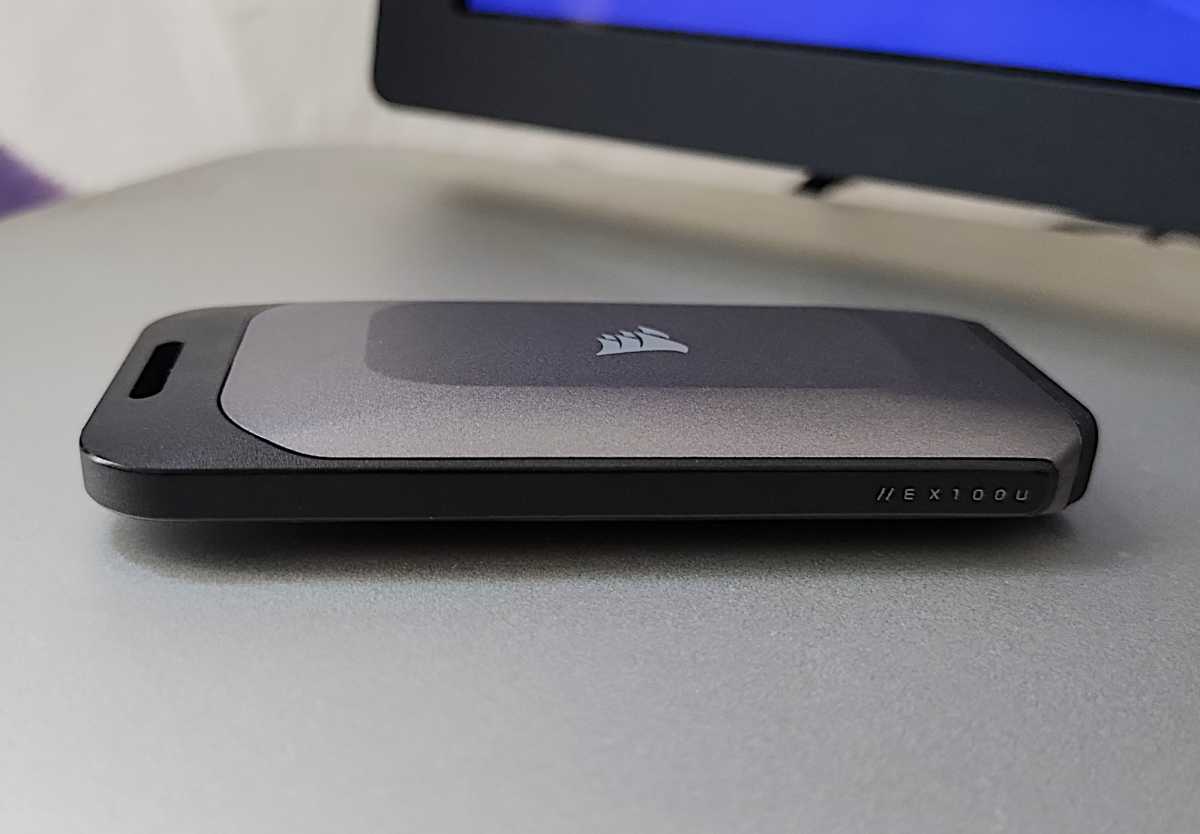
A three-year limited warranty is provided for the EX100U, with the limit no doubt being physical abuse and trying to write exabytes of data to the drive.
How much is the Corsair EX100U?
To be honest, I was expecting the EX100U to be considerably cheaper than the competition due to its lesser performance, which I describe below. But that is not the case. The 1TB version is available for $95, the 2TB for $160, and the 4TB for $395 at the time of this writing.
That’s competitive per gigabyte of capacity, but not in terms of gigabytes per second.
How fast is the Corsair EX100U?
If this were five years ago, I’d be raving about the 2TB EX100U I tested. It beats the heck out of 5Gbps USB drives and is faster than 10Gbps drives, except during long writes. For a USB 3.2×2 SSD, however, it’s slow. Oddly, it beat most of the competition in 4K performance, but lagged significantly in sequential transfers.
Take, for example, the EX100U’s last-place performance (among all 20Gbps SSDs) in CrystalDiskMark 8’s sequential transfer tests. In truth, it wasn’t even particularly close.
If you find it at heavy discount somewhere, the EX100U is fine for light workloads.
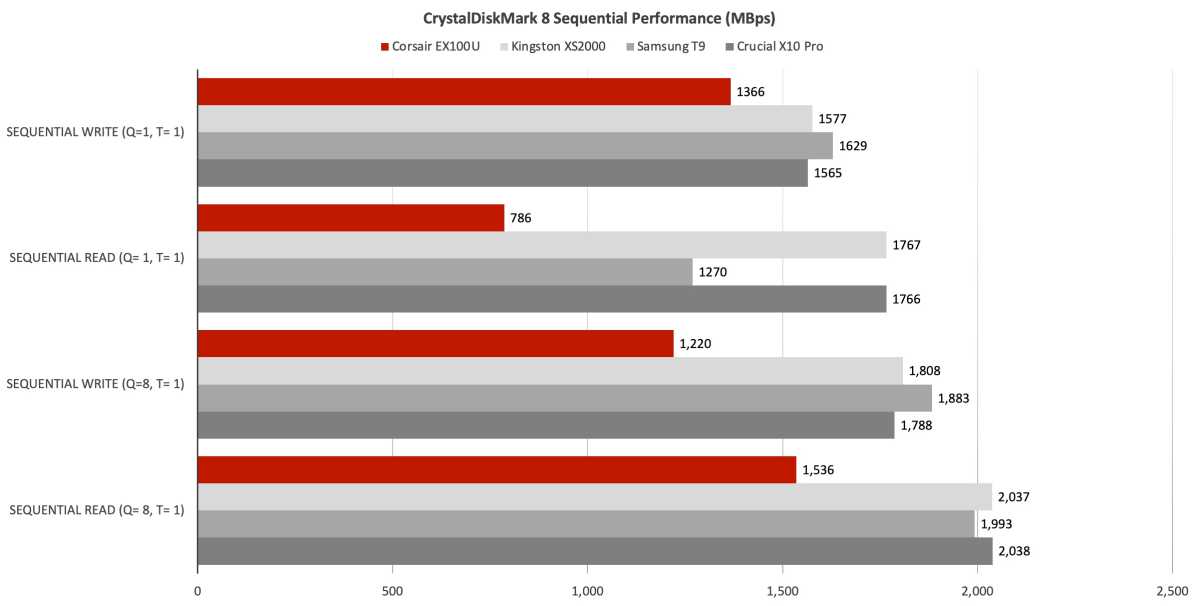
Right-click and select “Open image in new tab” to see more detail.
The 4K transfer tests below were the EX100U’s one moment to shine. If you were to run an operating system off this drive, it would feel pretty darn sprightly.
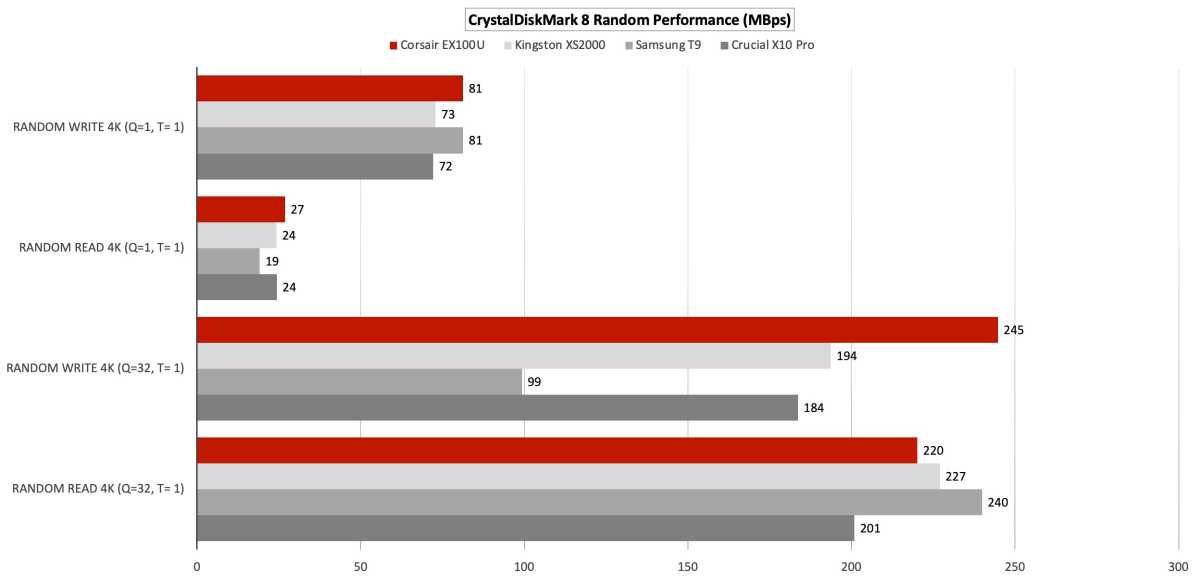
The older Kingston XS2000 was the closest match to the EX100U’s not-so-speedy 48GB real-world transfers, hence its presence on the charts. But you can see from the Samsung T9 and Crucial X10 that there are far faster 20Gbps USB 3.2×2 SSDs available.
Note that the poor 48GB single-file write time was due to the drive running out of secondary cache before finishing — something we’ve never seen before with a 2TB SSD. Normally, this won’t occur until the 450GB write — even with 1TB drives with less NAND to allot for secondary cache duties.
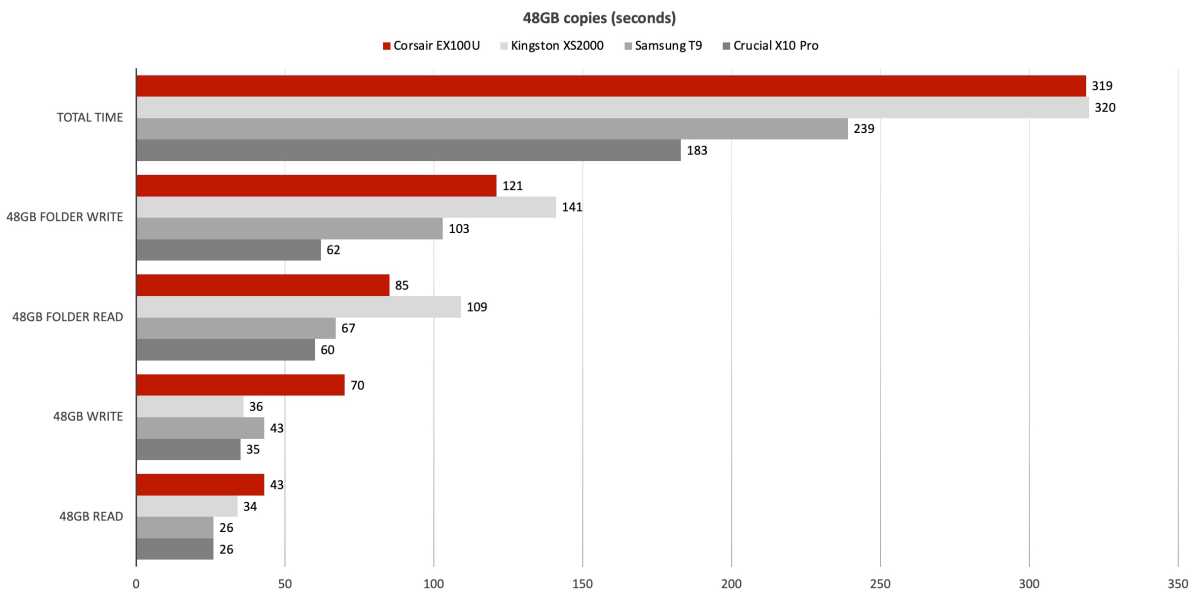
The same exhaustion of cache occurred in the 450GB write, which dropped to around 300MBps after writing a mere 35GB of data. At least here, the EX100U outpaced the XS2000 because of a slightly faster native NAND write speed. Note that many 10Gbps SSDs finish this test in half the time or less.
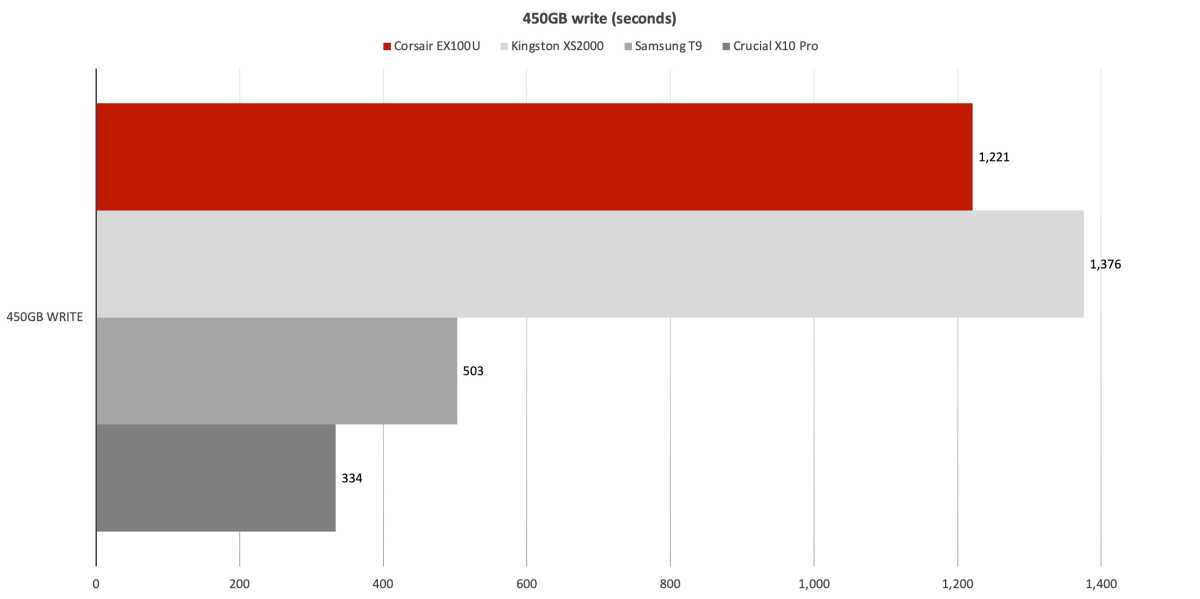
The early slowdown is shown in graphic detail below.
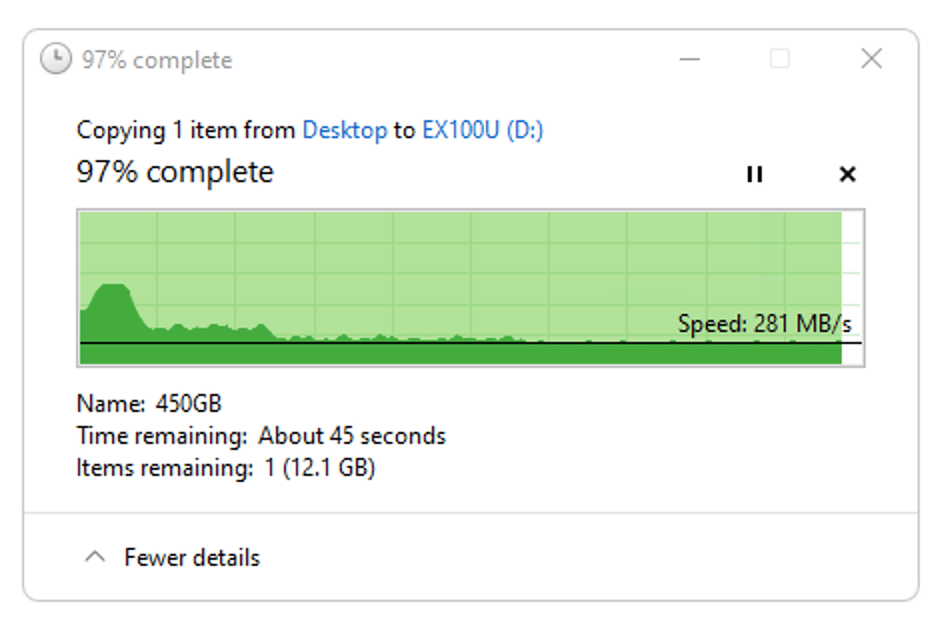
Obviously, the EX100U leaves something to be desired when it comes to performance. Indeed, it might be better to think of it as a souped-up 10Gbps drive — if you can find it as a price commensurate with 10Gbps.
Note that I had to enter disk manager and choose “Better performance” under Properties/Policies to get these numbers. Performance was noticeably worse at the default “Quick removal” setting. This change isn’t generally required, but on occasion it helps.
Should I buy the Corsair EX100U?
With pricing as it was at the time of this review, the Corsair EX100U is not of our short list of bargains at this time. That said, it’s one of our favorite products in appearance. If you find it at heavy discount somewhere, it’s fine for light workloads, — indeed, you can consider it a four-star drive when priced lower.
How we test
Drive tests currently utilize Windows 11 (22H2) 64-bit running on an X790 (PCIe 5.0) motherboard/i5-12400 CPU combo with two Kingston Fury 32GB DDR5 modules (64GB of memory total). Intel integrated graphics are used. The 48GB transfer tests utilize an ImDisk RAM disk taking up 58GB of the 64GB total memory. The 450GB file is transferred from a Samsung 990 Pro 2TB, which also contains the operating system.
Each test is performed on a newly NTFS-formatted and TRIM’d drive so the results are optimal. Note that as any drive fills up, performance will decrease due to less NAND for secondary caching, and other factors.
The performance numbers shown apply only to the drive we were shipped as well as the capacity tested. SSD performance can vary with capacity due to more or fewer chips to read/write across and the amount of NAND available for secondary caching (writing TLC/QLC as SLC). Vendors also occasionally swap components. If you ever notice a large discrepancy between the performance you experience and that which we report (systems being roughly equal), by all means—let us know.





